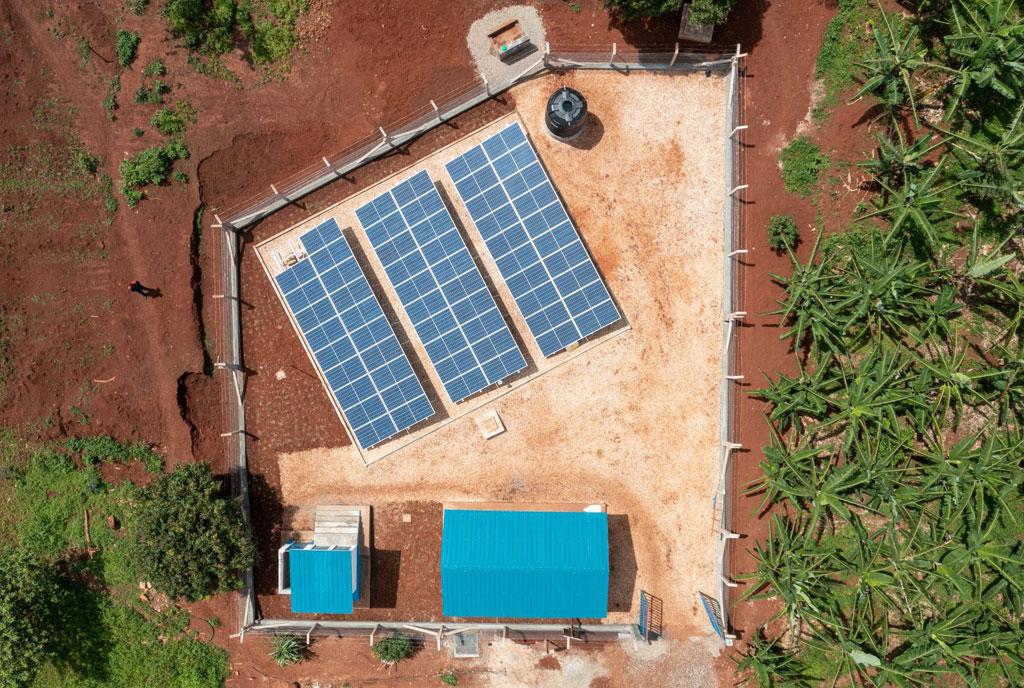Prime
More than 600 farmers take to solar irrigation

A solar system.
What you need to know:
- Majority of Ugandans heavily depend on the agricultural sector for food and income.
- Solar-powered irrigation systems are, therefore, expected to lower the operational costs for both large and small-scale farmers in the long run and improve crop yields even during the dry seasons while at the same time reducing carbon emissions and greenhouses gases.
At least 600 Ugandan agricultural communities, particularly in rural areas in various parts of the country, are set to benefit from an innovative solar-powered irrigation system designed by Nexus Green to reduce the cost of farming and curb the effects of climate change in Uganda.
Technology
According to Rikki Verma, the CEO at Nexus Green, the Nexus Solar Irrigation Systems are also expected to revolutionise and professionalise Uganda’s agricultural sector by easing access to water for farmers and rural communities through affordable and premium solar products.
“We are blanketing the country with more than 600 sites of solar irrigation systems to create wealth within the agriculture sector by introducing smart-agriculture practices and agribusiness development to move the small scale farmers from subsistence cultivation (majority at present) into modern commercial farming which would increase production, productivity and farm income,” Verma said while announcing the renewable energy solutions in Kampala.
Investing in irrigation
With the increasingly unreliable rainfall patterns, the need for investment in irrigation and climate resilience has become of paramount importance, and the Government of Uganda recently ranked irrigation as the third most important infrastructural investment that will facilitate economic transformation of the country as envisaged under Vision 2040.
This project produces a perfect response to tackle the adverse effects of climate change in the agricultural sector, by providing water to mainly water stressed communities in Uganda for domestic use, farm use – animal and small holder crop farming.
“It will also support community training on sustainable agricultural practices, developing resilience to climate change, protection of environments near swamps and water bodies, enhancing food security, promote proper sanitation and developing rural community livelihoods,” he says.
Nexus Green, which was founded in October 2015, is a solar energy company that specialises in designing, supplying, manufacturing, and delivering affordable solar-powered solutions that reduce carbon emissions and provide cheaper and cleaner energy.
Solar solutions
According to Verma, Nexus Green is also introducing the latest state-of-the-art Solar Solutions which are also expected to greatly transform and significantly profit Uganda’s commercial and industry sector by easing access to renewable energy for companies and institutions through affordable and premium solar products.
Verma noted, “From a financial standpoint, it is becoming very costly for businesses connected to the national electricity grid to do run their operation because energy price keep going up. The obvious alternative route for a replacement is renewable energy. The grid and diesel generation are not reliable. Power cuts, and the cost of fuel to keep operating the generators cost a lot. Using Solar with batteries is cheaper as there is no need to rely on the grid anymore,” he said.
“Power instabilities can have serious implications on food security and the social stability in the agricultural sector. Electricity is essential in modern farming practices, and load shedding disrupts farming operations. Solar energy provides a sustainable solution for such problems enabling farmers to have a continuous smooth running of all operations especially those in rural areas,” Verma added.
According to the Uganda Bureau of Statistics, about 70 percent of Uganda’s working population is employed in agriculture. During the Financial Year 2021/22 agriculture accounted for 24.1 percent of Uganda’s GDP and 33 percent of export earnings, according to the ministry of finance, planning and economic development.
Agriculture economy
Majority of Ugandans heavily depend on the agricultural sector to for food and income. Solar-powered irrigation systems are therefore expected to lower the operational costs for both large and small-scale farmers in the long run and improve crop yields even during the dry seasons while at the same time reducing carbon emissions and greenhouses gases.
Verma noted that Nexus Green is committed to working hand in hand with the Government of Uganda to realize increased adaptation of solar energy across the energy by introducing cutting-edge technology to allow villages and small towns to connect to energy using mini-grids.
“The East African region presents enormous opportunities in the energy sector. We are excited to have our hub in Uganda which is land linked to so many countries,” he added.




